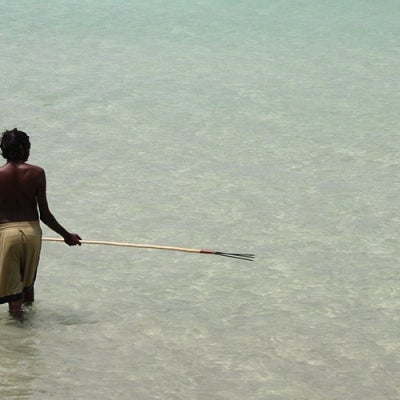Refine results
-
14 December 2012Book page
Social Justice Report 2006: Recommendations
In accordance with the functions set out in section 46C(1) (a) of the Human Rights and Equal Opportunity Commission Act 1986 (Cth), this report includes 8 recommendations – 3 in relation to the accessibility of mainstream services under the new arrangements for Indigenous affairs, 1 in relation to engaging with Indigenous communities under the new arrangements for Indigenous affairs and 4… -
Education16 December 2014Webpage
Who experiences racism?
Racial discrimination profoundly affects lives. Aboriginal, Torres Strait Islanders, and people from culturally diverse backgrounds endure frequent racism. Learn what you can do. -
14 December 2012Book page
Social Justice Report 2005 : Appendix 1 : Chronology of events relating to the new arrangements for the administration of Indigenous affairs, 1 July 2004 - 30 June 2005
This Appendix provides an overview of main events since the introduction of the new arrangements for the administration of Indigenous affairs on 1 July 2004. It commences with a summary table and is followed by a detailed description of each event. -
14 December 2012Book page
Social Justice Report 2001: Chapter 6: Reconciliation – National progress one year on
In its final recommendations, the Council for Aboriginal Reconciliation proposed that there be a legislative requirement for the Social Justice Commissioner to monitor progress towards reconciliation on an annual basis. In the Social Justice Report 2000 it was noted that while legislative amendment to this end was desirable, this task could be undertaken under my existing functions. Accordingly,… -
14 December 2012Book page
Social Justice Report 2003: Chapter 5: Addressing family violence in Indigenous communities
back to contents Chapter 5: Addressing family violence in Indigenous communities There is no issue currently causing more destruction to the fabric of Indigenous communities than family violence. This has been acknowledged by all levels of government in recent years, with a number of significant inquiries and initiatives undertaken or commenced at the federal, state and territory level to address… -
14 December 2012Book page
Framing and advancing national human rights agendas - Annual Report 2009-2010: Australian Human Rights Commission
The Commission provides advice and recommendations to the Australian Government on an ongoing basis. Our aim is to ensure that a human rights perspective informs a broad range of policy issues, especially in priority areas like social inclusion. -
Aboriginal and Torres Strait Islander Social Justice14 December 2012Project

Native Title
Native title is a property right which reflects a relationship to land which is the very foundation of Indigenous religion, culture and well-being. The non-discriminatory protection of native title is a recognised human right. -
14 December 2012Book page
Working at the Commission - Annual Report 2011-2012: Australian Human Rights Commission
The Commission has a highly committed and experienced workforce. To ensure that staff have support to achieve a work life balance, we provide access to a wide range of flexible work options. These best practice strategies assist staff of all ages, with various disabilities and external responsibilities to work productively and safely. -
14 December 2012Book page
A Community Guide: Social Justice and Native Title Reports 2008
In my role as Aboriginal and Torres Strait Islander Social Justice Commissioner I am required to produce two annual reports on Indigenous human rights issues – the Social Justice Report and the Native Title Report. -
Legal14 December 2012Webpage
Draft Indigenous Economic Development Strategy (2010)
The Australian Human Rights Commission makes this submission to the Department of Families, Housing, Community Services and Indigenous Affairs (FaHCSIA) in response to the draft Indigenous Economic Development Strategy (IEDS). -
14 December 2012Book page
Chapter 1 - Introduction: Social Justice Report 2008
A united Australia which represents this land of ours; values the Aboriginal and Torres Strait Islander heritage and provides justice and equity for all. Vision of Reconciliation, Council for Aboriginal Reconciliation.[1] -
Aboriginal and Torres Strait Islander Social Justice11 December 2013Project

Social Justice and Native Title Reports
Learn how the Human Rights Legislation Amendment Act has meant there is no longer a legal requirement for an annual Social Justice and Native Title Report. -
12 February 2013Book page
3 Promotion and protection of human rights on the ground
3.1 Equality before the law and non-discrimination A prominent theme throughout Australia’s UPR was the unacceptable level of disadvantage experienced by Aboriginal and Torres Strait Islander Peoples, with 50 of the countries that spoke during the interactive dialogue referring to issues affecting Aboriginal and Torres Strait Islander peoples. [15] Since its appearance the Australian… -
Aboriginal and Torres Strait Islander Social Justice11 February 2015Opinion piece
We must keep striving to close the gap in Indigenous health
"Just in the last week, three of my closest friends and a relative have been diagnosed with cancer. This is not an uncommon story, to be – as a community – constantly in grief, loss and trauma." These words, from Janine Mohamed, chief executive of the Congress of Aboriginal and Torres Strait Islander Nurses and Midwives, will be familiar to our communities across Australia. As will her… -
14 December 2012Book page
Native Title Report 2006: Chapter 6: Ngarda Civil and Mining
Ngarda Civil and Mining (Ngarda) began its operation five years ago with six staff and six whipper-snippers. It is now a multi-million dollar Indigenous owned and operated business that provides contracting services to the mining and construction industries in four regions of the Pilbara. -
14 December 2012Book page
Native Title Report 2006: Chapter 5: The Argyle Participation Agreement
The Indigenous Land Use Agreement (ILUA) and Argyle Management Plan Agreement (AMPA) together are arguably the most comprehensive arrangements ever made between a resource company and traditional owners negotiated in Australia. They are the result of one of the most comprehensive agreement processes undertaken with traditional owners. -
14 December 2012Book page
Leading and influencing advocacy on human rights - Annual Report 2011-2012: Australian Human Rights Commission
The Commission has been working closely with the Attorney-General’s Department on all aspects of the Framework. In particular, we have provided input into the development of a National Human Rights Action Plan, human rights education initiatives, improved human rights protections including greater parliamentary scrutiny, and consolidation of federal discrimination laws. -
Children's Rights9 September 2022Speech
Every child, in every community, needs a fair go. Shining a light on supporting children to grow up safe and supported
His Excellency General the Honourable David Hurley AC DSC, Governor-General of Australia, and Her Excellency Mrs Linda Hurley. Thank you for launching National Child Protection Week 2022 and for hosting us today. I would like to acknowledge the traditional owners of this land, the Ngunnawal people, and pay my respect to their elders, past, present and emerging, and to all Aboriginal and… -
14 December 2012Book page
Monitoring and reporting on laws and policy - Annual Report 2009-2010: Australian Human Rights Commission
The Commission assesses compliance with human rights principles by examining and reporting on issues of race, age, sex and disability discrimination and human rights. In doing so, we play a significant role in the monitoring of legislation and policy in Australia. -
14 December 2012Book page
Social Justice Report 2003: Chapter 3: Indigenous participation in decision making – Transforming the relationship between government and Indigenous peoples
The twin pillars of the government's approach to Indigenous policy in 2003 continued to be practical reconciliation, with its emphasis on service delivery in core areas of disadvantage, and mutual obligation, with its emphasis on reciprocity and individual responsibility. Through both of these policies, the government has identified moving Indigenous people beyond welfare dependency and enabling…
